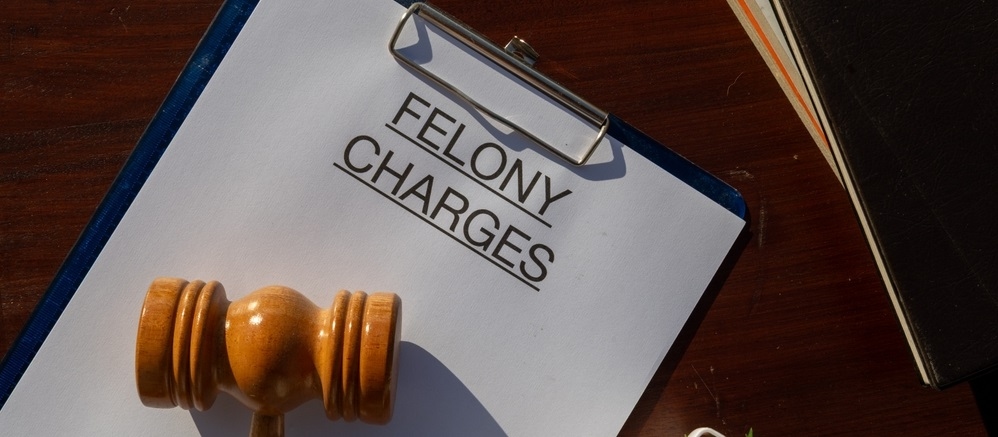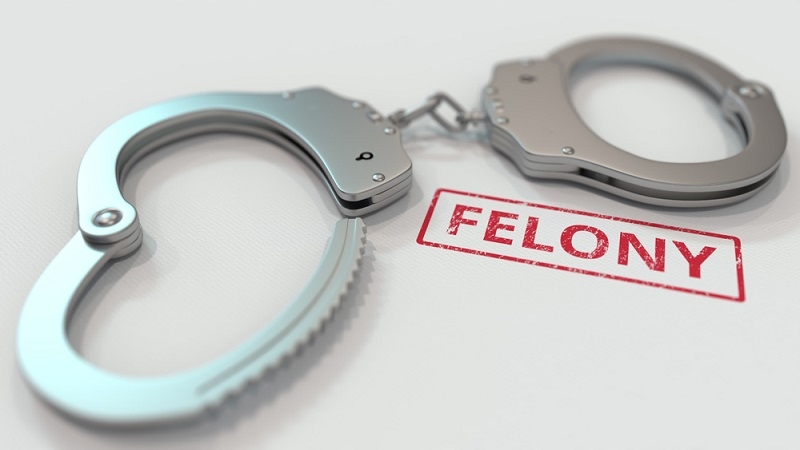Legal News

What are Felony Offenses, Their Types & Legal Differences?
Every crime has a story with some small details that are forgotten easily and others that remain relevant for years. Felony offenses are criminal acts that belong to the second category. It can be referred as a serious crime that leaves deep marks. These are actions that can impact someone’s life completely.
This story walks through what is a felony, the types of felonies that exist, and how they stand apart from misdemeanors. It’s told simply, the way anyone would explain it to a friend who wants to understand how the law treats serious crimes.
Understanding What Is a Felony Offense?
A felony is a crime that carries heavy punishment — usually more than a year in prison. It’s not a small offense. Crimes like murder, arson, or serious drug trafficking fall into this category.
A felony crime is different from misdemeanors. This is because a misdemeanor might mean short jail time or fines, but a felony can change someone's record forever. It can affect where they work, where they live, and even their right to vote.
But here’s something not everyone knows — not every state treats the same act the same way. A drug crime that’s a misdemeanor in one state could be a felony in another. The rules vary. The punishment depends on the place, the intent, and the harm caused.
Felonies also come in levels or “classes.” Class A felonies are the most serious, things like murder or kidnapping. Lower classes include crimes that still hurt others, just in different ways — like fraud, theft, or burglary.
So, when people ask what is a felony, it is a crime that crosses a serious line, one that law and society see as too severe to overlook.
What are the Types of Felonies?

Felonies don’t all look the same. Some involve violence, others involve money, and a few involve trust being broken. Each type has its own story and consequences.
1. Violent Felonies
Violent felonies are the ones that hurt people physically or put them in danger. They are often the hardest to forget — both for the victim and for society. These crimes include:
- Murder: Taking another person’s life on purpose. It’s one of the most serious crimes in any legal system.
- Manslaughter: When someone causes a death without planning it beforehand.
- Assault with a Deadly Weapon: Attacking someone using something that can cause serious injury.
- Kidnapping: Taking or holding someone against their will.
- Rape or Sexual Assault: Forcing someone into sexual activity without consent.
Each of these crimes leaves scars that go beyond the courtroom. The punishment is always strict, and the consequences last long after prison time ends.
2. Drug-Related Felonies
Drug crimes can be tricky. Some cases are minor; others can destroy lives. It depends on the scale and intent. Possession of small amounts might be a misdemeanor. But when drugs are made, sold, or moved in large amounts — that's when felony charges begin. Examples include:
- Drug Trafficking: Selling or transporting illegal drugs.
- Manufacturing or Cultivation: Producing drugs or growing illegal plants.
- Possession with Intent to Distribute: Holding a large amount meant for sale.
- Money Laundering Related to Drugs: Moving or hiding money earned from drug sales.
Drug-related felonies are taken seriously because they are often linked to organized crime or harm to communities. The punishment depends on how much was involved and whether weapons were used.
3. Theft and Property Felonies
Criminal activities like broken trust that cause financial or emotional damage fall under this category. Some common examples are listed below:
- Grand Theft: If someone steals another person’s high-valued property.
- Burglary: When people break into a building or home to commit a crime like robbery.
- Arson: When someone intentionally sets fire to a building or property to cause damage.
- Robbery: Taking something away from someone forcefully or by fear.
Theft and property felonies might sound less violent, but still carry severe penalties. When weapons or threats are used, the punishment becomes even harsher.
4. White Collar Felonies
White-collar crime is different because they do not involve physical violence. They are convicted because of dishonesty, manipulation, or financial scams. These criminals do not usually leave any mark on your body, but they can surely impact your life massively:
- Fraud: Using lies to get money or benefits from others.
- Perjury: Lying under oath during a court case.
- Forgery: Creating fake signatures or documents.
- Embezzlement: Stealing from a company or organization.
- Tax Evasion: Avoiding paying taxes that are legally required.
These crimes often take time to uncover. Investigations can go on for months or even years. When proven, they result in strong punishments and lasting reputational damage.
Understanding Felony vs Misdemeanor
The main difference is that a felony is a serious crime, while a misdemeanor is a less serious one. But both are crimes, and both have consequences.
A misdemeanor might result in short jail time, fines, or probation. Felonies, though, often lead to years in prison. And when someone is convicted of a felony, it affects more than just freedom. It can mean losing civil rights — like voting or owning a firearm.
Another difference is where the sentence is served. Misdemeanor sentences are usually served in local jails, while felony sentences are served in state prisons.
But it’s not always black and white. Some crimes sit in the middle. Take assault, for example. If it causes minor injury, it’s a misdemeanor. Add a weapon or serious harm, and it becomes a felony.
So, when people talk about felony vs misdemeanor, they’re really talking about degrees of seriousness — how deep the damage runs and how harsh the response will be.
5 Common Consequences of Felony Charges
Felony charges don’t end with the sentence. They follow people into every part of life. Here are five common effects that show how lasting they can be:
- Imprisonment: Most felony convictions result in time behind bars, but the duration of this punishment depends completely on the crime.
- Permanent Record: A felony stays on record for life and does not just fade away with time.
- Loss of Rights: People convicted of felonies may lose the right to vote or own a gun.
- Employment Struggles: Background checks often make it hard to find stable work afterward.
- Social Impact: Felony convictions can affect how others see and treat a person.
These are not just legal consequences — they are personal ones. They change how someone lives, works, and connects with others.
Conclusion
Felony offenses are the most serious crimes in the system. They include violent acts, drug crimes, thefts, and white collar offenses. Each one carries real and lasting effects. Knowing what a felony is, the types of felonies, and how they differ from misdemeanors helps people understand how deeply the law shapes lives.
Current Topics
1. How to Find the Right Attorney and Choose the Best Lawyer
Finding the right attorn...
2. Healthcare Compliance Rules Every Legal Pro Must Know
Here's the thing. Health...
3. AI ChatGPT Tools in Artificial Intelligence for Lawyers
The world of law is evolving at a pac...
4. What Are the Employment Laws Protecting Worker Rights?
In contemporary jobs, it...
5. Financial Resilience Explained for Stability & Success
Money is so cumulative i...
6. What Are Gig Economy Jobs? Legal Rights You Must Know
The way people work has changed drama...
7. Rights & Mediator's Role in Pregnancy Child Support 2025
The first idea that will come to the ...
8. Digital Courtrooms: VR Evidence & Remote Trials in 2025
Once upon a time, courtrooms were all...
9. How to Find a Good Lawyer Made Simple for Beginners
The first question that ...
10. What Is B Corp Certification & Why Law Firms Want It In 2025
In 2025, impact matters....
